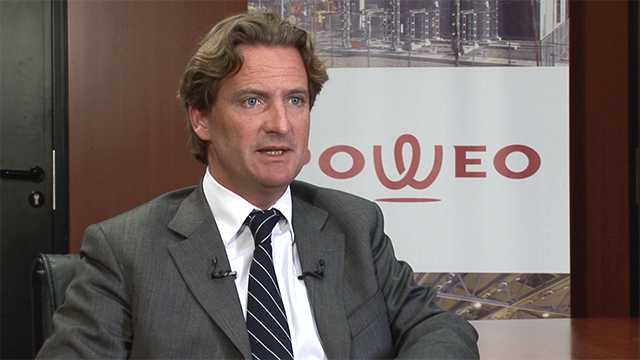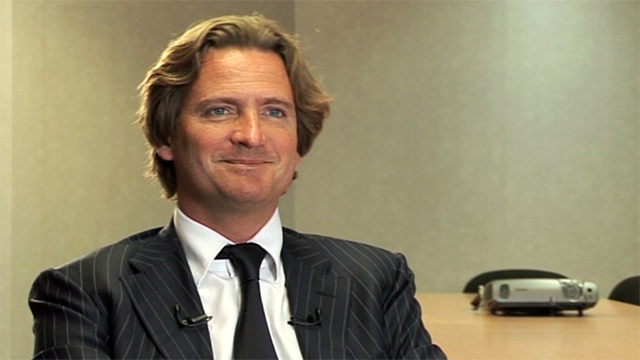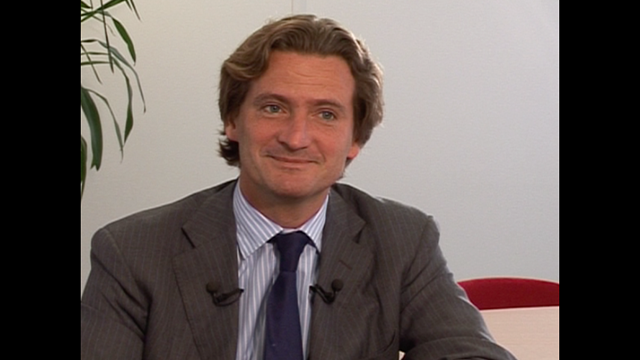EuroBusinessMedia (EBM): Poweo, France’s first independent gas and electricity utility, has just announced the first fire of its power plant in Pont-sur-Sambre in the north of France. Charles Beigbeder, welcome. You are the founder and CEO of Poweo. How would you describe the importance of this first industrial asset for Poweo?
CB: It’s the concrete realisation of our industrial strategy that was initiated in 2005 and which we have accelerated in 2006 through the partnership with Verbund. So this first plant is a combined cycle gas turbine of 412 MW. It will produce between 2 and 2.5 TWh of electricity per year, which is enough to source 400,000 households. The total investment amounts to €232 million and it has been financed 70% through debt financing - project finance - and 30% through equity, and 40% of that equity has been contributed by Verbund. 80% of the production is off-taken by EDF and by Verbund through a price formula that takes into account fluctuations in CO2 prices and natural gas prices. The commercial launch will take place at the end of the summer, so there is a delay which is due to Siemens and we will get a financial indemnity for that. It’s an asset of great quality, which should generate an EBITDA of more than €35 million in a full year, and the replacement cost of the plan, if we had to rebuild it now, would be €350 million.
EBM: You have already obtained the permits to build and to run another power plant project in Toul. What are the next steps in your industrial plan?
CB: The realisation of Pont-sur-Sambre, our first power plant, demonstrates our capacity to develop with success our projects in new power generation capacities. We have 3,800 MW in power generation projects, of which 1,300 MW in renewable power generation projects, and 2,500 MW in combined cycle gas turbines. This thermal capacity corresponds to 400 MW in Pont-sur-Sambre, 400 MW in Toul, 800 MW in Blaringhem and 800 MW for two other projects.
As an industrial player, our job is to develop in parallel several projects, some of which would face some insurmountable obstacle, and we will have to end those projects, unfortunately, and some, on the contrary, will be faster than expected. The development of several CCGT’s (Combined Cycle Gas Turbines) in the coming years rests upon the quality of our portfolio of projects. The Toul project is now entering its final phase as we have to select the equipment manufacturer and we have to finalize the project financing with the objective of starting the field works within the end of the year.
EBM: The financial world is in the midst of an unprecedented credit crisis. As a result, are you finding it more difficult to find financing for some of your projects?
CB: We haven’t observed problems. We have finalized, in the last quarter of 2008, at the height of the crisis, three financing agreements for renewable assets with no problem. Each of the projects was between €15 million and €20 million. Of course, we are conscious there is a crisis of unprecedented size and we are conscious also that we now have to finance this big project which is Toul. It’s a €350 million total investment, of which at least €250 million of project finance. But we think that a power plant whose production is off-taken by state owned entities like EDF and Verbund is an asset of very high quality, and we are very confident that we should be able to finalize the project financing for this plant. We are working with Calyon, the investment bank, and we are aiming to receive binding commitments from a group of selected banks this coming summer.
EBM: The Champsaur Commission in France, a government sponsored working group, was set up to make suggestions to improve the energy markets in France. What is your take on the works of the Champsaur Commission?
CB: Due to pressure from the European Commission, the French government needs to reshuffle the entire regulated tariff system. It does not work anymore and it’s illegal vis-à-vis the Rome Treaty. It does not favour investment in power generation and we need new power generation capacity. Besides, it’s not favouring energy efficiency, so consumers are not told that they should better control their consumption. One of the main fields the Commission is working on is the implementation of a regulated sourcing mechanism which will allocate nuclear power rights to the new entrants. This is a critical development for Poweo given that the market truly open to competition will represent 30% of the overall market, which is a 10-fold increase compared to the current situation. This is a drastic change, comparable to that of the telecom sector in 2003 when France Télécom finally granted full access to its network for the new entrants.
EBM: Lastly, how do you plan to reach your break-even target at the EBIT level in 2009?
CB: Let me remind you we have set 3 objectives for 2009. First, a customer base greater than half a million active sites, compared to 300,000 at the beginning of the year, which implies doubling our residential customer base. Secondly, a sales growth between 10% and 20% before Energy Management. This implies a greater focus on the mass market at the expense of the other segments for which we expect and hope better market conditions. Revenues from power supply to residential customers will be multiplied by 5; this means we will reach a 400% growth on our core business segment. Thirdly, our plan to break even at the EBIT level depends upon the commercial launch of Pont-sur-Sambre on schedule and the successful implementation of our cost reduction plan. This EBIT target also depends upon power market prices returning to the level they were at at the end of last year because our results integrate the market value of our nuclear sourcing which comes from the EDF swap. But most of all, the key event in 2009 for Poweo will be the commercial launch of Pont-sur-Sambre, the very first Combined Cycle Gas Turbine ever to operate in France.
EBM: Charles Beigbeder, founder and CEO of Poweo, thank you very much.
CB: Thank you for having me.




